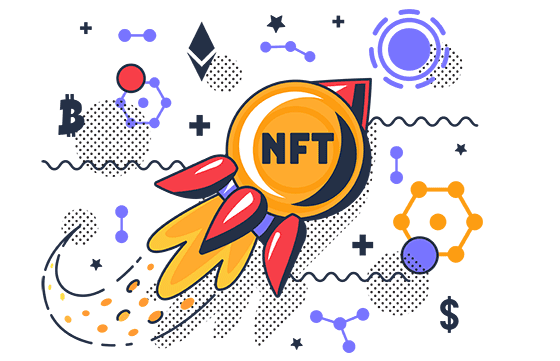In the mainstream media and the traditional investment world, risk and cryptocurrencies are practically synonymous. However, it doesn’t have to be that way. Conventional hedging principles such as diversification apply in the cryptocurrency space as well. By investing in asset-backed security tokens, one can significantly lower risk exposure and allow access to early-stage venture capital for crypto investors.
Have you invested in utility tokens that have no product or proven business model, but just a concept and theoretical roadmap? Then you’re probably all too familiar with the exciting thrill of seeing your portfolio’s value rise like an air balloon, just to experience crippling anxiety after your portfolio’s value-free falls like a roller coaster.
While blockchain technology allows us to tokenize almost anything from supply chain management to the Internet of Things, an asset-backed security token, specifically a Tokenized Security Fund (TSF), allows the average crypto investor to diversify their portfolio in companies with a proven track record of revenue and growth.
As a less volatile alternative, a TSF takes excessive speculation out of the equation by tokenizing real-world assets — in BR11’s case, a portfolio of 11 high-growth startups, each tackling a specific industry in Brazil ripe for disruption.
Utility Token vs. Tokenized Startup Fund (TSF)
Before we dive into the specifics of a Tokenized Startup Fund, let’s analyze the broader picture of utility tokens. Utility tokens, (by-and-large), represent future access to a company’s product or service.
The defining characteristic of utility tokens is that they are not designed as investments; rather they power large distributed networks and the decentralized applications on top of them.
It remains to be seen, but the technological novelty of utility tokens may potentially exempt them from current federal laws governing securities. This leaves room for a considerable amount of regulatory ambiguity.
Based on abstract concepts — As previously mentioned, these tokens simply provide users with a product and/or service (associated with some decentralized virtual economy). Considering the nascency of the blockchain and cryptocurrency space, many utility tokens related to products/services still do not exist and have not been market-tested for product fit.
Speculative in nature — The value of many utility tokens is based purely on speculation. It relies heavily on the state of cryptocurrency market sentiment, and sensationalist news outlets.
Lack of data and protocol — No platform protocols have attained mainstream adoption- with that comes little to no historical data to develop reliable valuation models and macro-trend insights. Additionally, there are no conventional industry standards and best practices concerning operational management and governance models for utility tokens and their respective protocols. Because of these reasons, it’s relatively difficult to gauge the short-term and long-term success of a utility token. Only 1% become a profitable business; very few exist after two years, according to Blockgeeks. (Source blockgeeks.com https://goo.gl/wkziaS)
On the flip side, Tokenized Security Funds (TSFs) derive their value from an external, tradable asset. The startups within the portfolio are already subject to federal securities regulations. Failure to abide by these regulations could result in costly penalties and seriously derail a project.
If a security token meets all of its regulatory obligations, the classification creates the potential for a wide variety of applications. Perhaps the most promising application of a security token is similar to that of shares of company stock along with these characteristics:
Value based on tangible assets — Security tokens derive their value from preexisting, tangible, and tradable assets. Transparency of asset performance (through quarterly NAV Reports in the case of BR11’s Tokenized Startup Fund (TSF) can paint a more accurate picture of the token’s inherent value. As opposed to other utility tokens, overall valuation of security tokens is not derived entirely from crypto market sentiment.
Any tangible asset can be tokenized — Since the assets represented by a Tokenized Startup Fund (TSF) already exist in the “real world,” they act as a bridge between the legacy finance world and the nascent cryptocurrency space. Other security tokens may also include stocks, bonds, real estate, and other traditional securities.
Investment democratization — What was previously exclusive to a small percentage of the population (with a minimum net worth) can now be available to a much broader demographic. Tokenizing assets opens up traditional investment to the masses. In the case of BR11’s TSF, the global community may now participate in owning part of a high-growth startup portfolio, provided they meet standard KYC/AML and registration requirements,
Safety and credibility — Since security tokens are regulated by governmental institutions, they require the implementation of actual best practices and principles within traditional finance. These principles and regulations can be incorporated into a Tokenized Startup Fund (TSF).
What are the most significant improvements a Tokenized Startup Fund (TSF) brings to the table?
Bringing credibility back to token sales — 80% of traditional token sales are scams. The regulated nature of security tokens makes this practically impossible for STOs, according to Cointelegraph. (source cointelegraph https://goo.gl/GjYCwA)
Reducing Institutional Intermediaries– Blockchain technology and security tokens remove the middleman out of financial transactions. It results in faster, borderless, safer, and transparent trading. Additionally, the added layer of executing smart contracts will eradicate the need for lawyers to reach settlements.
Exposure to Free Market — The peer-to-peer transaction of security tokens is not impacted by jurisdictional restrictions imposed by banks and financial institutions around the world. It also mitigates the potential for institutional manipulation.
Larger Pool of Investors — Security tokens and blockchain technology open traditional finance investments to a much wider audience, forming of a much larger pool of investors.
No Lockup Period — There is no lock-up period with a Tokenized Startup Fund (TSF); with traditional venture capital funds, lock-ups can occur from 7–13 years, or if a company in a portfolio exits. With a Tokenized Startup Fund, investors may buy or sell tokens at any point in the life cycle of a company.
The importance of investment diversification
“Diversification is a technique that reduces risk by allocating investments among various financial instruments, industries, and other categories. It aims to maximize return by investing in different areas that would each react differently to the same event”. — Investopedia
How will the BR11 token diversify risk exposure?
The BR11 Tokenized Startup Fund (TSF) is a never-before-seen initiative. It is an investment portfolio comprising of high-performance startups that generate significant revenue and occupy sizeable market share, some of which are already expanding internationally.
Bossa Nova and Ace Investments (which combined are the largest startup accelerators in Latin America) handpicked the portfolio from a pool of 400 startups. The main aim for the BR11 token is to diversify a crypto-investor’s portfolio and risk exposure amongst 11 startups. The diversification is derived by all of the startups’ proven business models.
Additionally, we believe that quarterly NAV reports of each startup will ensure transparency and instill greater confidence in the security token market as a whole. By democratizing venture capital, BR11 also aims to mature the cryptocurrency investment industry, both much-needed value propositions in the midst of current market sentiment.
In the many ups and downs of the crypto market (which may seem like an amusement park at times), one must take a break from the extremely volatile roller coasters now and then. Diversifying your pool of decision-making is critical for yielding the highest output of growth and mitigating downside. In cryptocurrency, investing in Tokenized Startup Funds (TSF) may provide much-needed diversification to hedge against the expected volatility in crypto-assets. A prime example of the TSF initiative, the BR11 Tokenized Startup Fund will enable investors from all over the world to hedge their risk exposure through a basket of tangible assets with proven business models and track records of high annual revenues.
Get in touch with me on LinkedIn and follow me on Medium.















